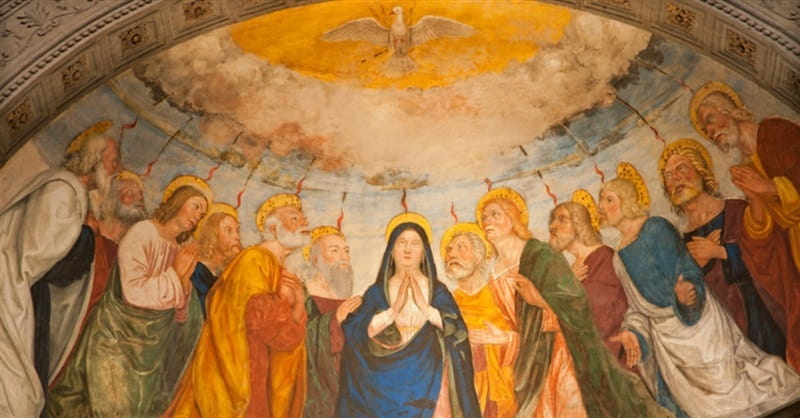From the perspective of Big Government, a crisis may be a "terrible thing to waste" and the coronavirus certainly offers a great opportunity for tyrannical bureaucrats as we've seen; but there are unintended consequences in the wind that are more promising. Big Brother may be surprised at what he's unleashed. At LewRockwell.com, Bill Sardi writes about the flip side of the virus:
...there is another ironic side to this unprecedented social engineering project that is underway:
- Who would have ever thought that mothers, fearful of their children being infected with the COVID-19 coronavirus, aren’t thinking of taking their kids to the doctor for shots after the epidemic is over.
- Who would have thought that doctors, fearful of getting infected by their patients, are retiring for good, ushering in an era of self-care.
- Who would have thought the masses would be taking vitamins instead of Big Pharma’s drugs to protect against the COVID-19?
Good questions for the masses; not so good for our overlords. And how many parents and young people will come to question the obscene costs of college as students "commute" from their home computers?
- Who would have thought that parents may not be taking their kids back to school come Fall and have decided to homeschool?
Yup! Change is in the wind and not all of it is bad.
As a former homeschooling parent, I'm particularly delighted to see the reports on homeschooling. Annie Holmquist writes in the Epoch Times, "It seems a bomb has been detonated in America's education sector....A new poll was released by RealClear Opinion Research the other day, indicating that the complaints we've been hearing about online schooling may not be as prevalent as we thought. When asked if they were 'more or less likely to enroll your son or daughter in a homeschool, neighborhood homeschool co-op, or virtual school once the lockdowns are over,' 41 percent of parents said they were more likely." She concludes saying, "Education may look a lot different post-COVID."
In view of the brainwashing in the classroom with diversity bookbags, explicit salacious sex-ed programs, easy availability of drugs on campus, etc. opting out is a blessing, even forced opting out. So let's hope that education does, in fact, "look a lot different post-COVID." Kids at home can cover in half the time the real material taught in the classroom, the three R's. The other time can be used to explore things that really interest the child. A budding architect can design and build. A musician can spend more time practicing a beloved instrument and listening to good music ("Alexa, play Bach."). The back yard and a big cardboard box offer a million imaginative adventures as does a reading nook with good books and a bowl of apples. The kitchen isn' just a home ec center, but a lab for simple science experiments. An online field trip can take one to the greatest museums of the world and the history channel opens up the wonders (and disasters) of the past.
Every morning can begin like schools used to -- with prayer and the pledge of allegiance. And if things get really challenging, there's nothing wrong with a day off playing cards and board games in your pajamas or binge watching Little House on the Prairie or baking three different kinds of cookies.
The film Life is Beautiful about the family incarcerated in a German concentration camp reminds us that people can find beauty in the worst of circumstances.
...can life retain its potential meaning in spite of its tragic aspects? After all, "saying yes to life in spite of everything," to use the phrase in which the title of a German book of mine is couched, presupposes that life is potentially meaningful under any conditions, even those which are most miserable. And this in turn presupposes the human capacity to creatively turn life's negative aspects into something positive or constructive. In other words, what matters is to make the best of any given situationIn the concentration camp, those who gave in to despair died. They died first psychologically and then they died physically. Discouragement and despair kill. Frankl also discusses "unemployment neurosis," a serious risk in today's environment. He writes:
...this neurosis really originated in a twofold erroneous identification: being jobless was equated with being useless, and being useless was equated with having a meaningless life. Consequently, whenever I succeeded in persuading the patients to volunteer in youth organizations, adult education, public libraries and the like—in other words, as soon as they could fill their abundant free time with some sort of unpaid but meaningful activity—their depression disappeared although their economic situation had not changed and their hunger was the same. The truth is that man does not live by welfare alone.I recommend Frankl's book as a prescription for those suffering from despair during these difficult times. Surely, if people could find meaning in the horrendous experiences of the concentration camps, we have no reason to despair today. Life is still beautiful and today, the Feast of Pentecost, reminds us Who makes it so!
"Come, O Holy Spirit, fill the hearts of thy faithful and enkindle in them the power of Thy love."



It is no coincidence that Roberto benigni is also a dante scholar. Dante knew how to bring joy out of sorrow or, as they say, if you're going through hell, keep on going!
ReplyDeleteCould the Nursing Home be far behind?
ReplyDeleteHaving lived where there was a day care center, I am so very glad that perhaps many babies were not dragged out of their beds and into the cold and rain to be deposited there. And also that mom's could be at home with them. Deo gratias.
ReplyDeleteWhy would one have to "find meaning" if trying to do God's will every day?
Osusanna, good question. But how many are actually trying to do God's will every day. The expression, "no atheists in a foxhole" illustrates the blessing a dangerous crisis can give. I pray that many people will find God because of the crises we are experiencing.
ReplyDelete